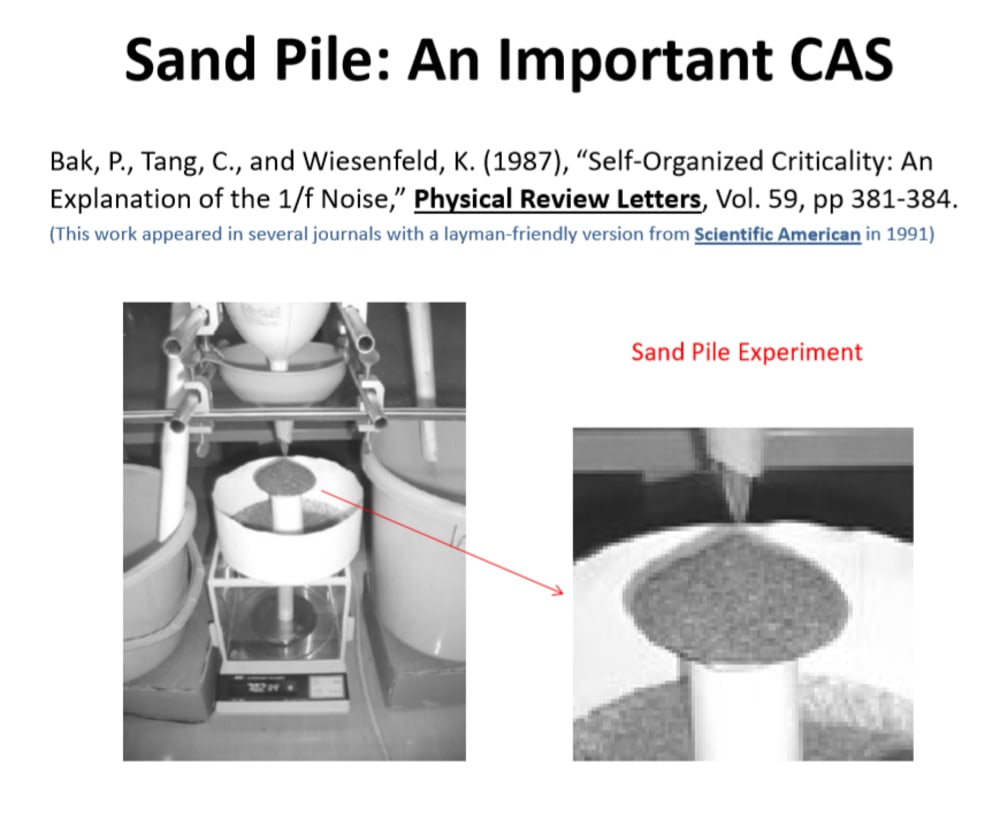
Tribo is the short term for Tribology, namely the study of two rubbing surfaces with regard to friction, wear and lubrication. CAS is an acronym for Complex Adaptive System, also known as Complexity Science. Their definitions can be found online such as Wikipedia. Tribo-CAS is the first successful attempt to employ the powerful CAS theory in the field of Tribology with unprecedented performance capabilities never seen before. In a nutshell, Tribo-CAS Film is a surface matrix layer composed of individual solid particulates (e.g., silicon nitride powder) with certain natural stickiness among themselves. This powder layer can be applied to ordinary steel/metal surfaces via sandblasting method or equivalent and adhere spontaneously without using extra adhesives.
Small particles display large Surface-Area-to-Volume (SA/V) ratio that is inversely proportional to the Characteristic Length of a particle (or size). In other words if particle size approaches zero, SA/V ratio would become infinity, and vice versa. Because SA is related to surface adhesive force whereas V is associated with gravitational mass pull, smaller particles tend to stick together more easily to form agglomerates as compared with larger particles. A type of "ultra fine" silicon nitride (Si3N4) powder with roughly one-micron particle size is used in this demonstration.
After the sand-blast Si3N4 powder layer was applied on the metal surface (e.g., the steel racetrack of ball bearing), it went through the initial break-in period under liquid-lubricated rolling contact to develop Tribo-CAS surface matrix as illustrated in Figures 1 and 2. All of Si3N4 particle clusters within the topographic matrix are load-carrying components of the surface because they were formed under contact pressure. Loose Si3N4 particulates from non-compressed regions were flushed out by liquid lubricant and left behind empty voids (porosity) which are excellent for oil retention. Consequently, only compressive stresses are pervasive throughout this topographic layer. As mentioned earlier because these Si3N4 particles are not rigidly bonded (capable of moving around independently), they cannot withstand or allow the existence of tensile stress literally. Tensile stress, which stretches and breaks molecular/atomic bonds, is the root cause of material wear and fatigue spallation.
Compressive Stress = Load
Tensile Stress = Wear
The development of Tribo-CAS Film was inspired by the critically acclaimed "Sand Pile" experiment from Complexity Science (Figure 3). Tribo-CAS Film, a virtual sand layer, evolves and self-organizes rapidly under dynamic rolling/sliding movement especially compatible with solid contaminant debris present in liquid lubricant. This work has been published in the journal Tribology Transactions, and received two US patents.
Features & Benefits:
Complex, Self-Organizing, and Adaptive System (emerging novel performance characteristics)
Zero Tensile Stress to Decouple Load from Wear (no additional wear after initial break-in)
Hybrid Topography with Effective Smoothness (optimal for tribological applications)
Excellent Retention of Liquid Lubricant (rule out boundary-lubrication regime)
Massage Treatment from Solid Contaminant Debris (synergistic toward lubricant-born particulates)
Rapidly Evolving Stress Distribution Pattern (eliminate substrate fatigue failure)
Adjustable Surface Micro Conformity (deformable asperity contact to avoid wear)
Resource Conservation and Fuel Economy (minimize friction and wear)
Better with Usage (spontaneous continual improvement over time)
-
Awards
-
 2020 Top 100 Entries
2020 Top 100 Entries
Like this entry?
-
About the Entrant
- Name:Kenneth Chao
- Type of entry:individual
- Patent status:patented








